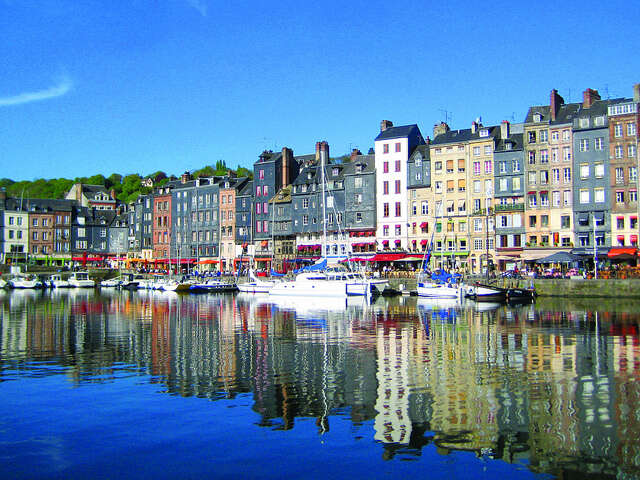Europe on the cheap - How to get the most bang for your dollar when travelling in Europe
Hero Image: "Europe" by Charles Clegg, Flickr.com is licensed under CC BY 2.0
When it comes to planning a European vacation, understanding the costs associated with travelling is just as crucial as finding out how to make the most of your time abroad. With the Euro and other European currencies poised in a never-ending flux, travellers — especially those embarking from North America — have to be even more mindful of expenses when planning an overseas trip. But believe it or not, a European vacation can be affordable with some careful planning. Before you begin creating an itinerary for your European getaway, consider these valuable money-saving tips.
Tip #1: Travel During the Value Season

Image: "Notre Dame de Paris" by BikerNormand is licensed under CC BY 2.0
For most travellers, the best time to see Europe is from April through June and September through October when the weather is still relatively warm, the crowds are smaller, and accommodations and transportation are more appropriately priced. There’s no doubt that July and August are the busiest tourist months in Europe. Avoid these months if you want to duck the high-season prices and large crowds. During peak season (the summer months), resorts, hotels and tours are often priced higher than usual due to the increased number of visitors. This is especially true with popular spots like Paris, Venice, Madrid, Rome and London since children are out of school and the weather is more pleasant.
During the fall, hotels and tours in these areas often slash their prices to attract visitors. So, to save the most, you’ll want to travel during the fall months when prices are typically at their absolute lowest. Hotels and tour operators are not the only ones who also offer lowered rates during off-peak seasons. Airlines often impose lower fares to fill up the seats. By patiently waiting and traveling after the large masses of the travelers have gone home, you can potentially save hundreds of dollars — if not more. The costs of traveling in Europe can range dramatically depending on the city and country you’re in. While London, Paris and Rome often command top dollar, cities in Croatia and Romania will stretch your wallet considerably less. If you’re set on visiting a highly-popular city, you can save further by booking accommodations that may be located a short distance away from the city. Generally, countries in Eastern Europe tend to be a little less expensive than most other countries to the west.
Tip #2: Focus on a Specific Region

Image: "Europe River Cruising" by Roderick Eime, Flickr.com is licensed under CC BY 2.0
While Europe may appear to be much smaller and compact than the US or Canada, Europe is still huge and getting around from one city to the next can quickly add up, both in time and cost. By spending time in one particular region, you can significantly save in travel-related costs and have a chance to really immerse yourself in the local culture. Keep in mind, Europe’s vastness and depth makes it impossible to see everything in just one trip. Instead, consider making your home-base in one city and take day trips from there — by doing this you will save on transportation costs. However, if you would like to cover large distances and travel between countries, trains are certainly the most economical way to go. No matter your likes or tastes, there’s a region of Europe for everyone.
Countries such as Austria and Switzerland, and the Nordic countries of Denmark, Norway, Sweden, Finland and Iceland, are great if you prefer mixing in some nature and wide open spaces while still having the opportunity to tour some historic cities. Should you prefer the comfort and convenience of cruising, there are also many great river cruises available throughout various regions of Central and Eastern Europe. And if sundrenched landscapes are calling you, a Mediterranean cruise to Spain, Italy and Greece will give you an amazing look at Southern Europe and all its magnificence.
Tip #3: Book a Tour, Cruise or Travel Package
 Image: "Sun setting at an Osteria in Tuscany" by Christian Haugen, Flickr.com is licensed under CC BY 2.0
Image: "Sun setting at an Osteria in Tuscany" by Christian Haugen, Flickr.com is licensed under CC BY 2.0
Tour and cruise packages are the best option for travellers who want to get the most for their dollar and at the same time, stay within a predetermined budget. Whether you are touring a selection of cities throughout different countries in Europe via a land tour or boarding a river or ocean cruise, having one’s itinerary, transportation, accommodations and meals arranged by a tour operator is convenient and cost-effective. The most obvious attraction to tour and cruise packages is the hassle free advantage of having everything arranged and booked for you — all for one price. These packages allow you to travel more inexpensively than if you were to purchase each of the travel components separately. Tour and cruise packages often include specific itineraries for your entire trip, so you need not fuss about which sights and activities you’re going to see and do each day of your vacation.
Tours usually include a qualified guide who will provide your group with invaluable assistance and information throughout your trip. If you prefer traveling on your own and being your own guide, a travel package consisting of multiple travel components of your choosing (air, lodging, transportation, attraction tickets, etc.) can also help you save since bundling them together can provide you with a greater discount. The offerings of individual packages can vary significantly, though most cover the basics such as air transport, land transfers and hotels accommodation. Some trip packages may even include perks such as complimentary meals at hotel restaurants, extended visiting times for some entertainment venues or discounts on entry to famous local attractions. Above all, tour, cruise and travel packages afford great convenience and savings — in both time and money.
Tip #4: Become Good Friends with Your Travel Agent
Like all great relationships, the one you create with a travel agent can open you to an exciting world travel possibilities. A good travel agent will know your travel destination like the back of their hand, or be able to put you in contact with someone who does. They know the intricacies associated with traveling overseas and how to help you find the perfect cruise or tour itinerary that best fits your personality, likes and needs. Best of all, your travel agent will have access to special rates on most hotels in your chosen destination.
Hotels operate different pricing structures based on who you are, and they typically break them down into three categories: rack, corporate and travel agency rates. Rack rates are what independent travelers pay, and are the full rate. Travel agents have pre-agreed confidential pricing with hotels that are sometimes in excess of 40-50% discount over rack rates. Special rates also can also be found on tours, flights, transfers, food and transport through your travel agent. In most cases your travel agent will have a local operator who you can call on should you need assistance if anything goes awry on your trip. Should you miss a flight, need help making rail reservations or need to change your itinerary due a medical emergency, your travel agent will be there for you 24/7.
